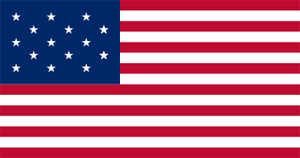War of 1812 Battles |
Colonial Wars |
American Wars |
Battle of Chippawa
July 5, 1814, Chippawa, Upper Canada
Books on The Battle of Chippawa are available from Amazon.com
 |
|||||||||||||||||||||
|
By July 1814, Napoleon had been defeated in Europe, and the arrival of seasoned British veterans in Canada was imminent. Prodded by Secretary of War John Armstrong, Jr. and eager to win a decisive victory in Canada before British reinforcements arrived. The Americans began training their army under the command of Brig. Gen. Winfield Scott, which were to form Maj. Gen. Jacob Brown's Army of the North.
After Gen. Winfield Scott had captured Fort Erie on July 3 and more militia units arrived under Peter B. Porter, Maj. Gen. Jacob Brown's army began advancing along the Niagara River into Upper Canada. Gen. Phineas Riall commanded an army of British regulars, militia and some Iroquois warriors. Riall planned to launch a surprise attack on the dismissible American militia units and send them back to the American side.
By early afternoon on July 5, Maj. Gen. Jacob Brown, Commander of the American Army of the North, has had enough of the snipers in the forest who have been harassing his pickets all morning. From his American front line, now north of Street's Creek, Brown summons Peter B. Porter who has just marched up from Fort Erie with over 1,000 men.
Porter was ordered to prepare his 350 warriors, 200 militia, and 60 regulars to enter the forest and flush out the snipers. He was not thrilled with the prospect of sacrificing his brigade to what could be a British trap, but he was aware that his reputation has suffered of late, and that a victory in battle would be just what's needed to salvage it.
The snipers hidden amongst the trees were actually small groups of over-enthusiastic tribesmen and militia acting at their own discretion. They accompanied John Norton on a reconnaissance of the American position earlier in the day, but decided to go ahead and rattle the American pickets. Brown pulled his left flank back to avoid the sniping. This led Norton to believe that the Americans were weak on this side. Norton estimated the American numbers, and returned across the Chippawa, unaware that Porter's force had just arrived. The British did not realize that their force of 2,000 was outnumbered by about 1,500.
Based on Norton's inaccurate information and his own scout's reports, Gen. Phineas Riall devised a plan. Norton would lead a combined force of British light infantry, militia, Iroquois and other tribesmen through the woods to flank the Americans. Meanwhile, the remainder of the British would cross the Chippawa and surprise the Americans head on. Riall had reason to be confident about a frontal assault; experience had shown American regulars to be ineffective against well-drilled British soldiers. He gave the order to move out at roughly the same time that Porter entered the woods.
On the south side of Street's Creek, Gen. Winfield Scott was putting his men through the manuvers they had been executing every day for months. Scott had already assumed there would not be any battle since it was late afternoon. Only when word of the the intensity of the battle in the woods reached him did Scott have a change of heart. When the Americans out front discovered Riall's position just ahead, the British lost their element of surprise.
Wasting no time, Scott marched his men out to meet the British as Porter's men came bursting from their short but bloody engagement with Norton's brigade in the woods. The commanders of both armies were somewhat bewildered by the quick developments, but both realized that a clash was now inevitable. Scott's men advanced in an orderly fashion despite fire from Norton's force in the woods to their left and the screaming artillery shells being lobbed by the British. Riall believed these grey-clad troops to be only Buffalo militia. As they pushed forward steadily, filling the gaps where men have fallen from British fire, Riall was shocked to admit that these must be well-trained regulars. The American line held so strongly that Riall exclaimed "Those are regulars by God." In fact, there was a blue cloth shortage and the grey uniforms were issued to the regulars.
The British were astonished to find the Americans adhering strongly to the rules of European-style warfare. The armies were separated by only 100 meters and fired volleys into each other, but Scott's men did not yield. The crack American artillery had silenced the British forward cannon as Scott's solid line performed an unorthodox U-shaped manuver to outflank the British on both ends. Despite Riall's riding up and down the lines encouraging the troops, it was the British who began to give way. As Scott shouted the order to charge with fixed bayonets, Riall opted for a full withdrawal.
In less than half an hour, the British had gone from mounting a confident surprise attack to a retreat across the Chippawa. The Americans did not pursue since Riall still held a strong position across the river. The Americans had met a superior British force in a classic field battle and emerged victorious.
The Battle of Chippawa, and the subsequent Battle of Plattsburgh, proved that American regular units could hold their own against British regulars if properly trained and well led. The American army, modeled and drilled according to French Revolutionary standards, and was becoming a respectable fighting force with new and capable leaders such as Brown and Scott, who were to emerge from the war as national heroes.
The Battle of Chippawa was a decisive victory for the American army, which allowed for the invasion of Canada along the Niagara River.
